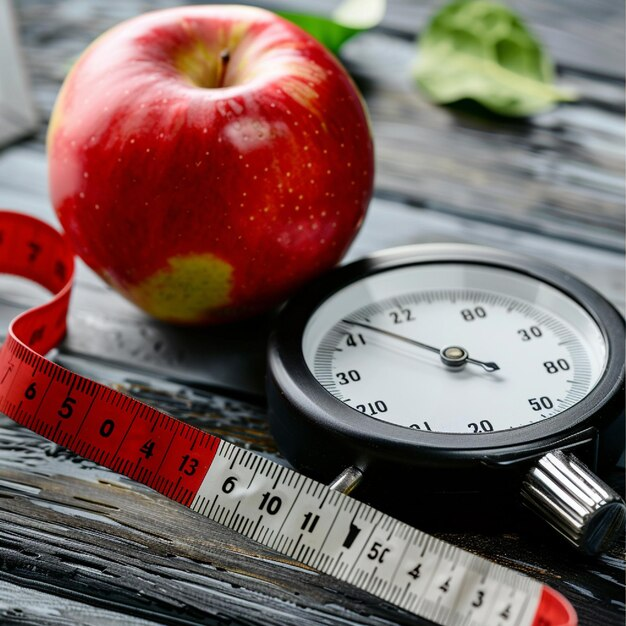




What is BMR and Why is it Important?
Basal Metabolic Rate refers to the number of calories your body needs to perform basic functions like Breathing, circulation, and cell production while at rest. By the end, you will know what BMR means and learn more about it here to make better health and fitness choices.
Why Should You Care about BMR?
BMR (Basal Metabolic Rate) is the amount of energy (calories) your body requires to perform basic life-sustaining functions while at complete rest.BMR helps in maintaining energy balance by determining how many calories are burned at rest. It also reflects how efficiently the body converts food into energy and helps us to understand weight management.

What Makes BMR So Important?
Your BMR plays a huge role in your daily energy balance. Knowing your BMR can help you:
Lose or gain weight effectively by adjusting calorie intake.
Plan your diet with the right calorie intake for weight loss, muscle gain, or maintenance.
Optimise your workouts by ensuring enough energy intake for activity levels.
Track your metabolism and understand how it changes with age, activity, or diet.
What Affects Your BMR? (The Science Behind Your Metabolism)
Your BMR isn’t the same for everyone. Several factors impact it, such as:
Age: Older people have a lower BMR due to muscle loss.
Gender: Men usually have a higher BMR than women because they have more muscle mass.
Muscle vs. Fat: More muscle burns more calories, increasing BMR.
Genetics: Some people naturally have a fast or slow metabolism.
Climate: Living in colder areas increases BMR as your body burns more energy to maintain temperature.
Hormones: Thyroid hormones regulate metabolic speed and influence BMR.
How to Calculate Your BMR (Step-by-Step Guide)
BMR is calculated using the Harris-Benedict Equation, which differs for men and women:
For Men:
$ BMR = 88.362 + (13.397 \times \text{weight in kg}) + (4.799 \times \text{height in cm}) - (5.677 \times \text{age in years}) $
For Women:
$ BMR = 447.593 + (9.247 \times \text{weight in kg}) + (3.098 \times \text{height in cm}) - (4.330 \times \text{age in years}) $
Example Calculation
For a 25-year-old woman weighing 60 kg and with a height of 165 cm:
$ BMR = 447.593 + (9.247 \times 60) + (3.098 \times 165) - (4.330 \times 25) $
$ BMR = 1400.5 \text{ kcal/day} $
This means she burns 1400.5 calories per day at rest to maintain body functions.
How BMR Helps in Weight Management (The Real-World Application)
Once you know your BMR, you can determine your Total Daily Energy Expenditure (TDEE), which is BMR multiplied by your activity level.
To lose weight: Eat fewer calories than TDEE.
To gain muscle: Eat more calories than TDEE and focus on protein intake.
To maintain weight: Keep calorie intake equal to TDEE.
How Can You Increase Your BMR?
Even though BMR is mostly genetic, you can boost it naturally by:
Strength training increases muscle mass, leading to a higher BMR.
Drinking enough water boosts metabolism.
The body burns more calories digesting protein than carbs or fats.
Poor sleep can slow down metabolism and increase fat storage.
Eating too few calories lowers metabolism, making weight loss harder.
Conclusion
BMR is the foundation of weight management and metabolic health. By understanding how many calories your body burns at rest, you can prepare your diet, exercise, and lifestyle for better results. Whether your goal is to lose weight, build muscle, or maintain a healthy metabolism, knowing your BMR is the first step to success.
FAQs on BMR Full Form: Basal Metabolic Rate
1. What is BMR in simple terms?
BMR (Basal Metabolic Rate) is the number of calories your body burns at rest to maintain basic functions like breathing, circulation, and digestion.
2. How is BMR different from metabolism?
BMR is a part of metabolism—it only accounts for the calories burned at rest, while metabolism includes all energy used for activity, digestion, and exercise.
3. How can I calculate my BMR?
BMR is calculated using the Harris-Benedict equation, which considers your age, weight, height, and gender. You can also use an online BMR calculator for quick results.
4. Does a higher BMR mean faster weight loss?
Yes, a higher BMR means your body burns more calories at rest, which can make weight loss easier when combined with a proper diet and exercise.
5. What factors affect BMR?
BMR is influenced by age, gender, muscle mass, genetics, hormones, body temperature, and activity level.
6. Can I increase my BMR naturally?
Yes, you can boost your BMR by building muscle, staying hydrated, eating more protein, getting enough sleep, and avoiding extreme calorie restriction.
7. How often should I check my BMR?
BMR doesn’t change frequently, so checking it every 6 months is enough unless you experience significant weight loss, muscle gain, or lifestyle changes.
8. Does BMR decrease with age?
Yes, BMR naturally decreases as you age because muscle mass declines and metabolism slows down. Strength training can help maintain a higher BMR.
9. Is BMR different for men and women?
Yes, men generally have a higher BMR than women due to greater muscle mass and lower body fat percentage.
10. What is the relationship between BMR and Total Daily Energy Expenditure (TDEE)?
BMR is a part of TDEE, which includes BMR + calories burned through physical activity + digestion (thermic effect of food). TDEE gives a complete estimate of daily calorie needs.























